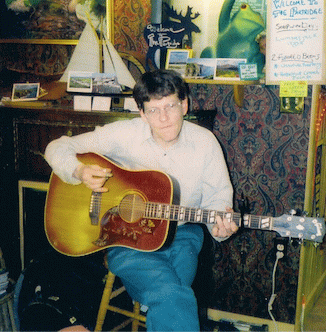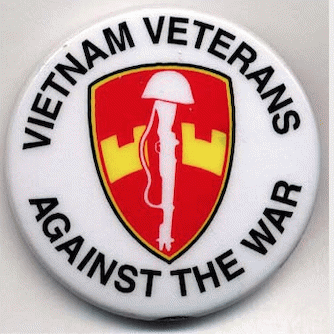My guest today is Richard Hayes Phillips, historian, activist, and forensic election investigator. Welcome back to OpEdNews, Richard.
Joan Brunwasser: In our last interview, you talked about how adversity turned you into an activist. You threw yourself into Eugene McCarthy's presidential campaign, among other things. You also pursued other avenues of activism. Tell us about that, please.
Richard Hayes Phillips: My political activism did not stop when McCarthy lost the presidential nomination. I couldn't do much during my senior year in high school because I was on probation for marijuana. I applied to a number of colleges, but Boston University was the only one that accepted my application. I did enroll, but not to further my education. I believed what I had been told -- that I had ruined my life and couldn't be a professional anything. I enrolled to get off probation. I also had to get a Social Security number and register for the draft.
I remember manning the tables in the lobby of the three dormitory towers on Commonwealth Avenue, recruiting as many students as I could for the moratorium marches against the war in October and November. I remember watching President Nixon announce his "incursion" into Cambodia on April 30. He said it was "not an invasion". But it was. And this touched off anti-war demonstrations all across the country. Students at 166 colleges went on strike. Four days later, National Guardsmen opened fire on student demonstrators at Kent State, leaving four dead and nine wounded. The next day, we staged a massive demonstration on the state house steps in Boston. There were 20,000 protestors. There were armed guards there too. I remember discussing whether we were prepared to die.
The Boston University faculty voted to support the student strike. The administrators cancelled exams and told us to go home. My college days were over.
JB: Then what?
RHP: Two months later they held the drawing for the draft lottery. My number was 200. That gave me about a fifty-fifty chance of being drafted. I have never second guessed the brave young men who went to Vietnam. We all did what we thought we should do at the time. All of our options were dreadful. But I knew I wouldn't go. The question was, how I was going to get out of it?
I had never applied for a student deferment because I didn't think it was fair to everybody else, and because I wasn't sure I would stay in school. I was classified "1-A" and "available for service" during the entire year of 1971.
Going to jail was not an option. I had spent my junior year in high school obsessed with staying out of jail. The authorities already suspected I was homosexual, but I didn't want to claim it and put another black mark on my official record. It would be bad enough that I was avoiding my "military obligation". I could not be a conscientious objector, because the law required that your beliefs derive from your religious upbringing, "not merely philosophical views". Those were the exact words. I didn't want to go into exile in Canada and never see the Adirondack Mountains again. My advantage was that I was a very little boy. So I went on a hunger strike and became a ninety-seven pound weakling, well below the weight minimum. It was easy not to eat well, because I was unemployable and I didn't have any money. I never did get called for a physical.
JB: Yikes! Now that you had exempted yourself from the war, what did you do? Knowing you, I'm sure you weren't sitting still.
RHP: I joined one more anti-war protest while still "eligible for service". I had wheedled $285 from my father for a Gibson hummingbird guitar (which I still play today), and I was now fully immersed in songwriting. I also played harmonica, with a holder. In late April 1971, after two open mike appearances, I landed my first paid engagement at the Sword in the Stone coffee house on Charles Street in Boston, for five dollars, a ham and Swiss on rye, and a couch to sleep on.

Richard at play: Background Music
(Image by Brad Mintener; courtesy of Richard Hayes Phillips) Details DMCA
Soon afterward, two young men in army fatigues saw me carrying my guitar through Harvard Square. I had long hair by then, and they correctly guessed that I was against the war and that I knew all the anti-war songs. They were with the Vietnam Veterans Against the War (VVAW), and they were planning Operation POW, a protest march on Memorial Day weekend from Concord Bridge to Lexington Green to Bunker Hill and Boston Common. It was to be a two-day march, and they had plenty of musicians willing to drive to the sites and entertain the troops. What they wanted was an eager young lad who would march with them for the whole fourteen miles, lugging his guitar the whole way, so everybody could stop and sing protest songs whenever they needed to rest. Some would be on crutches. Some would be in wheelchairs.
So we gathered at Concord Bridge on Friday night, assembled on a misty Saturday morn, and marched to Lexington Green, holding purple lilac flowers. Along the road, there was guerrilla theatre to dramatize how our troops had treated the Vietnamese. At Lexington Green, there were songs and speeches, and long soft chants in candlelight of "we are not alone" and "bring our brothers home". The Board of Selectmen refused to allow us to camp on Lexington Green. I remember them worrying about how to avoid a confrontation, seemingly unaware that all we wanted to do was live in peace. So they arrested 150 Vietnam veterans (including John Kerry), 300 town citizens, and one adopted folksinger. We marched into custody quite peacefully with our hands behind our heads, as prisoners of war. We were fined five dollars each, and the townspeople raised more than enough cash to pay our fines. The next day, we marched to Boston Common, where a large crowd had gathered to hear Eugene McCarthy and many local musicians (including Bonnie Raitt). To this day, it is the largest audience I have ever had.
JB: What a great story. I can picture the whole scene; you sketched it well. And I love Bonnie Raitt!
(Note: You can view every article as one long page if you sign up as an Advocate Member, or higher).






